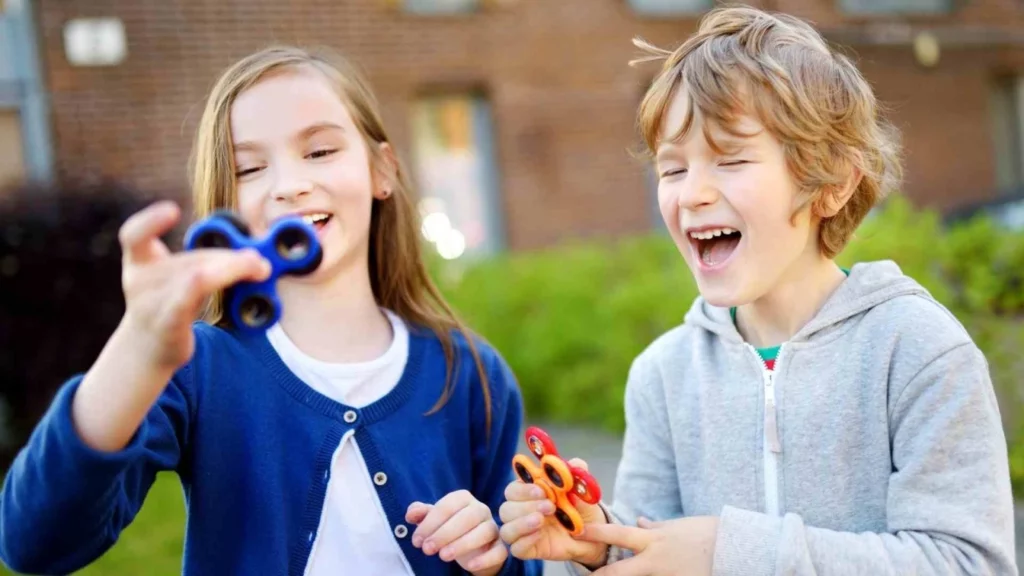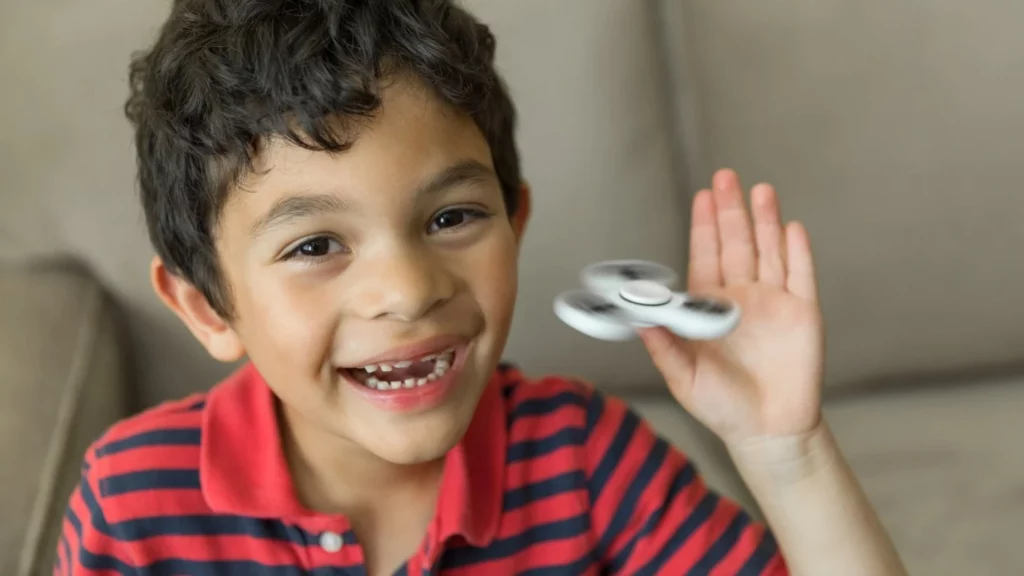Contents
In the realm of parenting and caregiving, navigating Attention Deficit Hyperactivity Disorder challenges can be both demanding and rewarding. In this article, we delve into the world of ADHD, equipping you with valuable insights and practical strategies to effectively support your child’s success, foster their development, and improve overall family dynamics. Gain valuable insights, enhance your support skills, and experience the positive impact of implementing these strategies in your daily life. In the following, you will:
- Gain valuable insights: Discover practical strategies and insights that will empower parents and caregivers to effectively navigate Attention Deficit Hyperactivity Disorder challenges.
- Enhance your support skills: Learn actionable tips and tools to better support your child’s success in managing ADHD, fostering their development, and improving overall well-being.
- Improve family dynamics: Implementing these strategies can lead to a more harmonious and balanced family life, reducing stress and enhancing the relationship between parents, caregivers, and children affected by ADHD.
10 Tips for Parenting Children with ADHD Video Guide
As a bonus, we have discovered an incredible video titled “10 Tips for Parenting Children with ADHD” by Prodigy parents. This valuable resource offers a comprehensive breakdown of practical tips and expert advice to help you navigate the challenges of parenting a child with ADHD. In this video guide, you will learn:
- Effective strategies for managing ADHD-related behaviors and promoting positive habits.
- Practical tips for creating a supportive environment at home and school.
- Techniques for improving communication and fostering healthy family dynamics.
Parents and caregivers of children with Attention Deficit Hyperactivity Disorder often face numerous challenges in understanding and managing their child’s condition effectively.
These challenges can lead to heightened frustration, strained relationships, and a sense of helplessness. It becomes difficult to support the child’s academic progress, social interactions, and overall well-being.
This blog post will provide parents and caregivers with practical strategies and insights to navigate the complexities of ADHD. By reading this post, you will gain the following:
- In-depth understanding: Learn about the underlying causes, symptoms, and characteristics of ADHD, enabling you to better comprehend your child’s experiences.
- Effective strategies: Discover a range of proven techniques and tools to address common challenges associated with Attention Deficit Hyperactivity Disorder, empowering you to support your child’s success and development.
- Improved family dynamics: Implementing the strategies discussed in this blog post will not only benefit your child but also enhance family dynamics. By fostering understanding, communication, and cooperation, you can create a more harmonious and supportive environment for your child to thrive.
This blog post will equip parents and caregivers with valuable insights, practical strategies, and the confidence needed to navigate ADHD challenges effectively, ultimately fostering their child’s well-being and family cohesion.

Understanding ADHD and Its Impact
- ADHD is a neurodevelopmental disorder that affects both children and adults, characterized by difficulties in paying attention, controlling impulses, and managing hyperactivity. It can significantly impact various aspects of a child’s life, including academic performance, social interactions, and emotional well-being.
- One of the key challenges for parents and caregivers is understanding the unique experiences and needs of individuals with Attention Deficit Hyperactivity Disorder. By gaining a deeper understanding of ADHD, you can provide the necessary support and guidance to help your child thrive.
- ADHD is not solely a result of poor parenting or lack of discipline. It is a complex condition with biological and genetic factors at play. Recognizing this can alleviate guilt and allow you to focus on effective strategies that address the underlying issues.
- ADHD can impact various areas of a child’s life, including school performance, time management, and emotional regulation. By identifying specific challenges, you can tailor strategies and interventions to support your child’s unique needs.
- Early intervention and a comprehensive approach that involves collaboration between parents, caregivers, educators, and healthcare professionals are essential in effectively managing ADHD and promoting positive outcomes for children with Attention Deficit Hyperactivity Disorder.
Effective Strategies for ADHD Management

Creating a Supportive Environment
- Establishing a structured routine and consistent expectations can provide a sense of stability for children with ADHD. Clear and predictable schedules help them stay organized and reduce anxiety.
- Implementing behavioral strategies such as positive reinforcement, rewards, and consequences can promote desired behaviors and improve self-control. Consistency and clear communication are key to their effectiveness.
- Breaking tasks into smaller, manageable steps can help children with Attention Deficit Hyperactivity Disorder stay focused and avoid feeling overwhelmed. Providing visual aids, such as checklists or visual schedules, can enhance understanding and task completion.
- Encouraging physical activity and regular exercise can help channel excess energy and improve concentration. Engaging in activities like sports, yoga, or outdoor play can have positive effects on attention and mood.
- Collaborating with teachers and school staff to implement accommodations and modifications in the classroom can support your child’s academic progress. Individualized Education Programs (IEPs) and 504 Plans can provide necessary support and accommodations.
Promoting Emotional Well-being and Self-care

Managing Emotional Challenges
- Children with ADHD often face emotional challenges such as frustration, low self-esteem, and difficulties with emotional regulation. Teaching and modeling strategies for emotional awareness and self-regulation can help them cope effectively.
- Encouraging open communication and providing a safe space for your child to express their feelings can foster a strong parent-child bond. Validating their emotions and offering empathy can help them navigate emotional challenges.
- Promoting healthy sleep habits is crucial for children with Attention Deficit Hyperactivity Disorder as lack of sleep can exacerbate symptoms. Establishing a consistent bedtime routine and creating a calm sleep environment can improve sleep quality.
- Self-care for parents and caregivers is vital to maintain their well-being and effectively support their child with ADHD. Taking time for relaxation, seeking support from others, and practicing stress management techniques areessential.
- Educating yourself about Attention Deficit Hyperactivity Disorder through books, online resources, and support groups can provide valuable insights and a sense of community. Connecting with other parents and caregivers who face similar challenges can offer mutual support and exchange of strategies.

In conclusion, navigating ADHD as a parent or caregiver requires understanding, empathy, and effective strategies. Throughout this post, we explored the key points to help you in this journey:
- Point one: Attention Deficit Hyperactivity Disorder is a complex neurodevelopmental disorder that affects various aspects of a child’s life. By gaining a deeper understanding of ADHD and acknowledging its biological nature, you can approach it with compassion and focus on appropriate interventions.
- Point two: Implementing effective strategies is crucial in managing Attention Deficit Hyperactivity Disorder. Creating a supportive environment with structured routines, employing behavioral strategies, breaking tasks into manageable steps, and collaborating with educators can significantly benefit your child’s progress.
- Point three: Emotional well-being and self-care are essential for both your child and yourself. Promoting emotional awareness, validating emotions, establishing healthy sleep habits, and practicing self-care contribute to a more balanced and harmonious family life.
By the end of this post, you should have learned that ADHD is a complex condition that requires a comprehensive approach. You should now have a better understanding of effective strategies to support your child’s success, manage challenges, and promote their overall well-being. Remember, navigating ADHD is a continuous journey, and seeking ongoing support, staying informed, and fostering a supportive network can make a significant difference in your child’s life.
If you’re eager to dive deeper into the topic of ADHD and gain more specific tips and guidance, I highly recommend checking out the article “Tips for parents and caregivers of children with ADHD” by Choc. This resource provides an in-depth breakdown of practical strategies and expert advice to further support you on your journey.
Before you wrap up, if you’re interested in further enhancing your child’s communication skills, I invite you to explore our blog article titled “Speech Therapy and Language Therapy: 03 Amazing Steps in Enhancing Communication Skills.” This insightful piece delves into practical steps and strategies to support your child’s language development and improve their communication abilities.